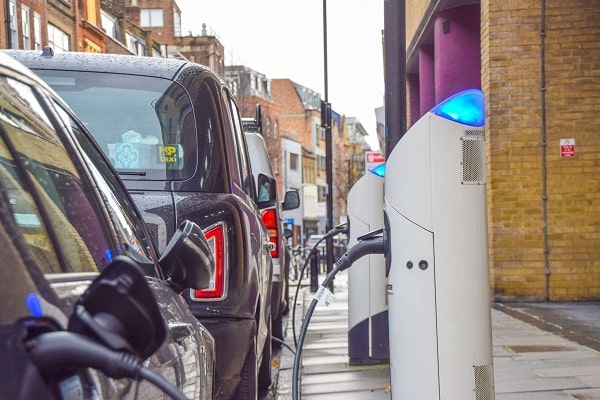There are a number of tax benefits to company electric vehicles:
- A low benefit in kind rate (currently 1% and fixed at 2% from 2022-23 until 2024-25)
- Enhanced tax deductions for the cost of the vehicle
- Government grants towards the cost of the vehicle
Businesses that install charging points at the workplace for electric vehicles can claim 100% first year allowances for these costs. If the employer then allows employees to charge their own electric cars each day at the workplace, there is no taxable benefit in kind – a good tax-free perk because the tax legislation does not treat electricity as fuel. This is irrespective of the level of private mileage.
For this exemption to apply, the charging facilities must be:
- Provided by the employer at or near the employee’s workplace;
- Available to all the employer’s employees generally, or all the employer’s employees generally at the employee’s workplace; and
- Suitable for the battery of a vehicle in which the employee is either the driver or a passenger.
Note that if an employer pays for an employee’s own electric car to be charged away from the workplace, the exemption will not apply and the cost or reimbursement will be taxable.
The installation of a charging point at an employees home for the purpose of charging a company vehicle would also be exempt from any benefit in kind tax charge. If the charging point were used for charging the employee’s own vehicle, even if that vehicle is used to carry out the duties of their employment, then the employee would be taxed on 20% of the market value of the installation at the employee’s marginal rate of tax.
Other possible scenarios might involve an employer paying for a vehicle to be charged or reimbursing an employee for the cost of doing this. If a company vehicle is charged at home and that vehicle is not used for business purposes then any reimbursement of that cost would be taxable. However the employee can be paid 4p per mile for business mileage when using a company vehicle. If using their own car the employee can be reimbursed at the usual 45p (up to 10,000 miles, 25p thereafter).
For electric vans there no benefit in kind on private use. Oddly there are no reduced rates of benefit in kind for company electric motorbikes.
Hybrid cars are treated the same as petrol fuelled cars, except that the vehicle’s electric range is also taken into consideration. For example a hybrid that has a CO2 rating of 1-50 is taxed at 1% if it has an electric range or more than 130 miles, but at 13% if the electric range is less than 30 miles (with further banded rates inbetween). The rates are higher if the vehicle was first registered before 6 April 2020.
Fully electric and low emission (less than 41 CO2 emissions) company cars qualify for a 100% first year allowance (FYA), meaning that the full cost of the vehicle is tax deductible in the year of purchase. For cars with emissions between 51g and 110 the allowance is 18% per annum (reducing balance basis) and for emissions of more than 110g it is 6%.
There are therefore considerable tax benefits both for the employer and the employee in switching to fully electric company cars and some hybrids. From a benefit-in-kind perspective, however, choosing other hybrids will not take full advantage of the employee’s maximum tax breaks and for the employer, capital allowances available will be less. Accordingly, careful consideration is necessary before the purchase.
If you would like to discuss how Elver E-Commerce Accountants can help your business please click here to book a Zoom meeting.

